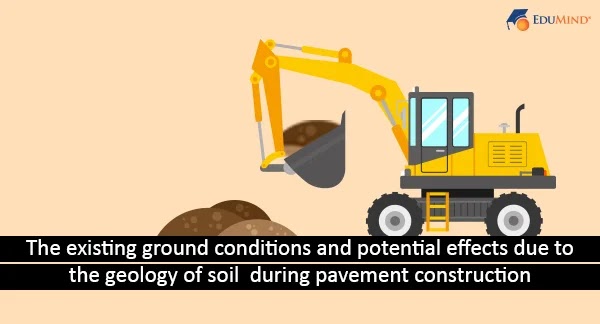Table of Contents
Geotechnical Investigation Need for Construction Engineering
Geotechnical investigations of project sites help to analyze the ground conditions as well as the possible range of effects associated with construction due to the type of soils, geological features and the location of the groundwater table. It is necessary to study in detail the topography of the project construction area, the geology of the region, the subsurface conditions and existing aquifers. Geotechnical investigations, soil phase diagrams and the Atterberg limits are important topics for the PE exam, thus they are emphasized in the PE exam review course. The potential effects on existing ground conditions are differential settlements of underlying soil layers generally due to the weight of newly constructed embankments, inducing mechanical vibrations by driving sheet or concrete piles for foundations, pavement cracking due to heavy traffic loads and storm water erosion.

Groundwater Pollution During Construction Operations
The quality of groundwater gradually decreases due to regular construction operations at the project site. Construction equipment, machinery spills or motor oil discharges penetrate through the soil layers along with storm water runoff. Stormwater from construction sites carries the sediment to nearby water bodies thereby diminishing the groundwater quality. Topography of the construction site and the depth of groundwater table may impact pavement construction operations. If the location of the groundwater table is near to the existing ground surface, temporary dewatering methods are used to reduce groundwater for smooth construction operations. Dewatering methods, such as pumping, wellpoint system installation, and trenching methods, will incur an additional cost to the construction project. Groundwater flow characteristics, dewatering methods, unconfined and confined aquifers are key subtopics in the Principles of Engineering (PE Civil) exam.
Geotechnical Observations and Suggested Engineering Analysis
Professional engineers will have a better understanding of the importance of geology, type of soil, and groundwater table depth prior to pavement construction. Anticipating the potential effects and evaluation and testing procedures of geology, soils and groundwater characteristics are essential for pavement construction. Engineering analysis of topographic conditions of project site and geographical features in the region plays a vital role during construction operations of highway projects. Understanding that project construction activities affect soil and groundwater will minimize potential indirect effects of construction operations. Professional construction engineers should identify mitigation measures to avoid or minimize the effects on the environment due to project construction activities.
Best Management Practices for Safe Construction Operations
The project engineering team should perform a geologic project site survey along the construction zone to note existing features, such as ground exposures, slope instability characteristics and natural vegetation. Based on engineers reviewing comments on plans, the field engineering team should plan for proposed pavement construction work through either excavation or embankment. It is always good to implement best project management practices and practice the recommendations of a professional engineer with the PE exam certification as a credential.
No comments :
Post a Comment